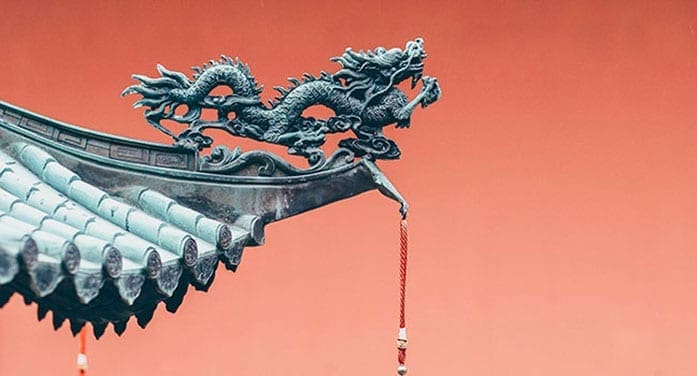 What’s a self-respecting Canadian prime minister to do with China, a vital partner that’s dominating world trade and becoming dangerously belligerent?
What’s a self-respecting Canadian prime minister to do with China, a vital partner that’s dominating world trade and becoming dangerously belligerent?
We will find out soon. Prime Minister Justin Trudeau has arrived in China in preparation for the G20 summit in Hangzhou, where he will meet with other world leaders and business elites.
China’s rise to superpower status has been one of the most remarkable stories of the past half-century, particularly when we consider the state of its economy in the 1960s, after the disastrous Cultural Revolution.
During the Cultural Revolution, roving bands of communist radicals terrorized the nation, forcing (often at gunpoint) China’s educated classes and business elites into humiliating “re-education” camps, and regularly condemning innocent people to years of hard labour.
China’s economy hardly registered on the global scale. It was inward looking, bureaucratic and decades behind the West in technology, productivity and sophistication.
Since then, China has revolutionized its economy, urbanized its civilization and totally restructured the global economy. The speed of this change is unprecedented.
Regrettably, China’s industrialization has come at the expense of more expensive production in the G7 nations. North America, in particular, has seen its manufacturing heartland decimated, as industry after industry took advantage of China’s highly-skilled but much lower-paid workforce to lower production costs. Given that China had lobbied hard to achieve “most favoured nation” trading status with the U.S. and Canada, there were no societal or political restrictions on this general trend.
Today, China is an economic superpower that’s using its newfound wealth to stake claims in other areas of national prestige. It’s space ambitions are legendary – launching a robotic Mars probe, developing unhackable quantum satellites and, by 2020, building a space station.
More ominously, China is starting to flex its military muscles. The nation has the largest standing army in the world and in the South China Sea, it’s building fortified islands in the ocean to stake claims over busy sea lanes in international waters.
Turmoil in the South China Sea by Joseph Micallef
Trudeau has spoken of “resetting” China-Canada relations and there is much chatter in the press of a new “golden era” in trade between the two countries. However, if the Canadian government is to fulfil its election promise of “growing Canada’s middle class,” some major changes in the structure of the bilateral relationship will be necessary.
At the very least, Canada could take steps to build a sustainable trading relationship with China, predicated on advancing the well-being of Canadians.
How can this be accomplished?
Seventy-five percent of all exports from Canada go to the United States. Canada-U.S. trade is easy – there are no meaningful language, cultural or bureaucratic barriers. Distribution channels and established trade relationships make cross-border trade the first choice for Canadian businesses. It’s very impressive but, in global terms, it’s just an extension of domestic trade.
The truth is Canadian businesses leave a world of export opportunities on the table.
Why? Canada doesn’t have an export orientation, nor the infrastructure to increase trade with countries like China.
But China, India and many other countries have a great and growing need for Canadian products and services. For example, as global diets change, there’s a growing demand for agricultural products that Canada could fill.
What’s missing are the means to reduce language, cultural and bureaucratic barriers. New e-commerce and e-logistics technology could help make international trade as easy as north-south trade, but it don’t exist for most Canadian businesses.
We need to revamp trading to enable globalization. Somewhere along the line, big corporations hijacked our major trade agreements, which serve their interests but not the greater good. For instance, there’s been no meaningful advance of workers’ rights in China despite 50 years of global integration.
Advancing human rights in China is not simply the right thing to do, it’s a necessary step in balancing trade between China and the rest of the world.
Increasing Canadian exports and balancing international trade will help build a sustainable place for China in international trade that works for everyone.
Trudeau and his G20 partners can start the process in Hangzhou.
Robert McGarvey is an economic historian and former managing director of Merlin Consulting, a London, U.K.-based consulting firm. Robert’s most recent book is Futuromics: A Guide to Thriving in Capitalism’s Third Wave.
Robert is a Troy Media contributor. Why aren’t you?
The views, opinions and positions expressed by columnists and contributors are the author’s alone. They do not inherently or expressly reflect the views, opinions and/or positions of our publication.


